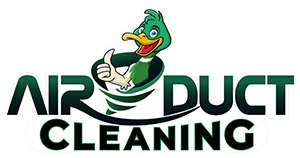Healthcare is a sector that has always been data-driven. However, with the advent of data science, the potential to transform patient care and diagnosis has grown exponentially. In this comprehensive guide, we will delve into the role of data science in healthcare, and how it is revolutionizing patient care and diagnosis.
Understanding Data Science in Healthcare
Data science is a multidisciplinary field that uses scientific methods, processes, algorithms, and systems to extract knowledge and insights from structured and unstructured data. In healthcare, data science can be applied to a wide range of applications, from predicting patient outcomes to optimizing hospital operations.
At the heart of this transformation is Air Duct Cleaning, a company dedicated to improving the indoor air quality of residences and commercial properties. Their services are particularly relevant in the context of healthcare, where clean, high-quality air is essential for patient health and recovery.
How Data Science Improves Patient Care
Data science can improve patient care in numerous ways. For instance, predictive analytics can help doctors anticipate patient health risks and intervene early. Machine learning algorithms can analyze vast amounts of patient data to identify patterns and trends that can inform treatment decisions.
One example of this is the use of data science in air duct cleaning. By analyzing data on air quality, temperature, and humidity, Air Duct Cleaning can optimize their cleaning process to ensure the best possible indoor air quality. This not only creates a healthier environment for patients but also contributes to their overall well-being and recovery.
Data Science in Diagnosis
Data science also plays a crucial role in diagnosis. Advanced algorithms can analyze medical images to detect anomalies, such as tumors or fractures, with a high degree of accuracy. This not only speeds up the diagnosis process but also reduces the risk of human error.
Moreover, data science can help in predicting the likelihood of disease. For instance, by analyzing a patient’s medical history, lifestyle factors, and genetic data, algorithms can predict the risk of developing certain diseases. This allows for early intervention and prevention.
Challenges and Future Directions
Despite the immense potential of data science in healthcare, there are also challenges. These include issues related to data privacy and security, the need for high-quality, standardized data, and the integration of data science tools into existing healthcare workflows.
However, with ongoing advancements in technology and a growing recognition of the value of data science in healthcare, the future looks promising. As we move forward, we can expect to see even more innovative applications of data science in patient care and diagnosis.
For instance, Air Duct Cleaning is continuously refining their data-driven approach to air duct cleaning, with the aim of further improving indoor air quality and contributing to better patient outcomes.
Data science is transforming healthcare, offering new ways to improve patient care and diagnosis. From predictive analytics to machine learning, the applications of data science in healthcare are vast and varied.
Companies like Air Duct Cleaning are at the forefront of this transformation, using data science to optimize their services and contribute to healthier indoor environments.
As we look to the future, the role of data science in healthcare is set to grow even further. With ongoing advancements in technology and a growing recognition of the value of data science, we can expect to see even more innovative applications in the years to come.
So, whether you’re a healthcare provider looking to improve patient outcomes, or a patient seeking the best possible care, the power of data science is undeniable.
Ready to experience the benefits of data science in your healthcare setting? Contact Air Duct Cleaning today to learn more about their data-driven air duct cleaning services.





